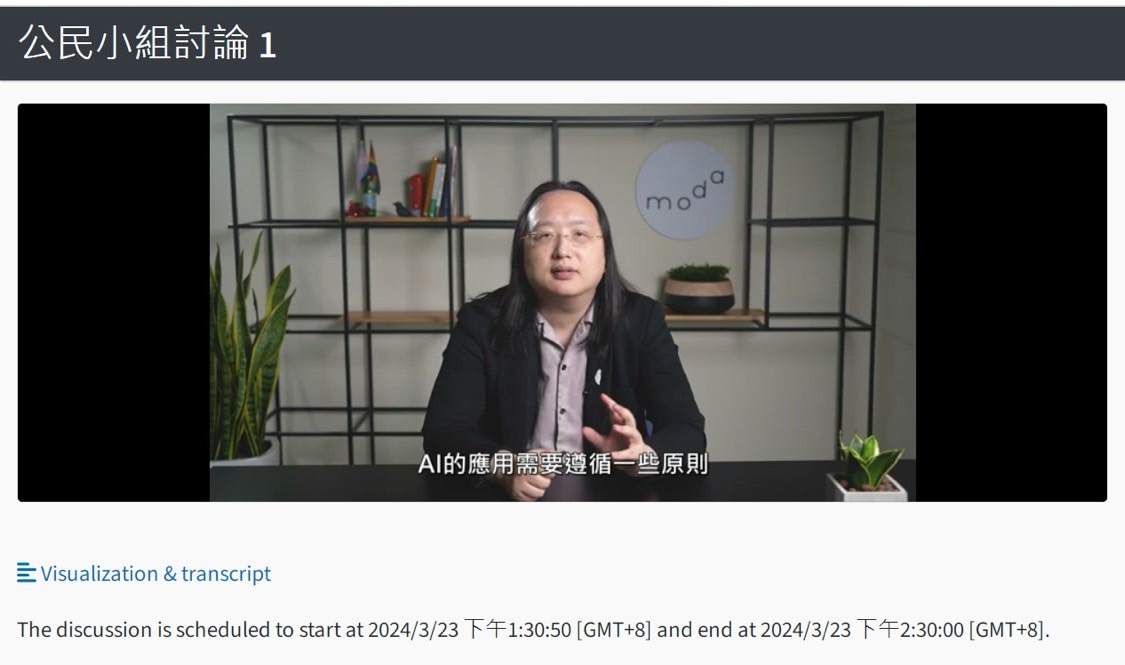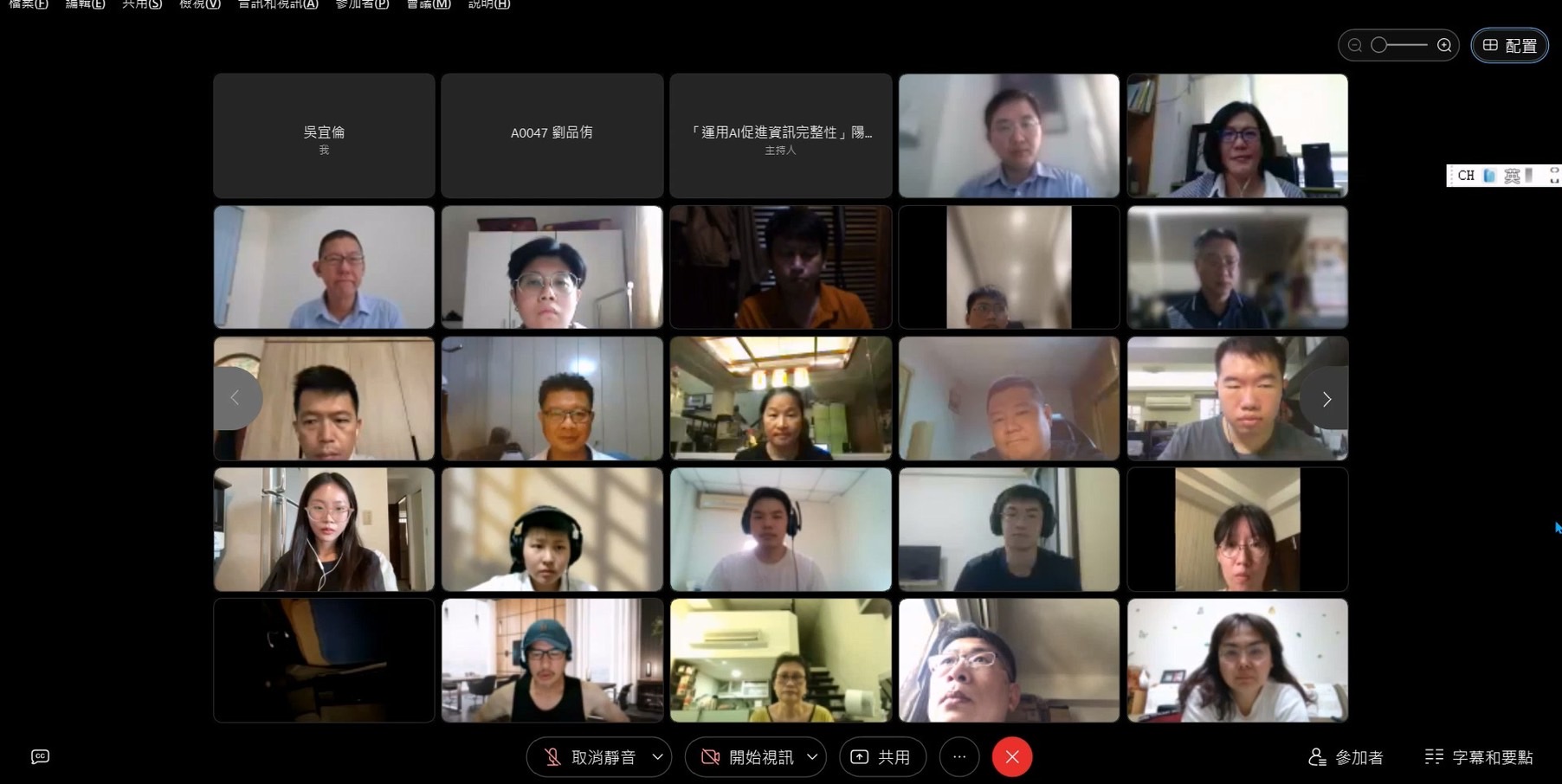The moda hosts online citizens’ deliberative assembly for utilizing AI to promote information integrity
An online citizens’ deliberative assembly utilizing AI to promote information integrity was staged March 23 by the Administration for Digital Industries under the Ministry of Digital Affairs, Institute of Science, Technology and Society at National Yang Ming Chiao Tung University, Industrial Technology Research Institute and the Deliberative Democracy Lab within Stanford University’s Center on Democracy, Development and the Rule of Law.
A total of 450 everyday citizens from around Taiwan took part in the event. The focus spanned four main areas pertaining to large-scale platforms: strengthening self-regulation or enhancing government supervision; utilizing AI to help citizens analyze emerging threats to information integrity; utilizing AI to help users maintain information integrity and utilizing AI to enhance information integrity standards.
Following spirited exchanges and discussions on the four main areas, 10 interdisciplinary academics and experts in information science, AI law, humanities, social sciences, communications technology, and computational linguistics shared ideas and opinions about issues concerning the public. The following outcomes were determined:
- The public should be invited to participate in and discuss AI regulatory policies, formulate AI regulatory mechanisms and standards, and establish corresponding penalties and enforcement to ensure fair and effective management.
- Large platforms should analyze and distinguish controversial information and content that is difficult to discern, select genuine, trustworthy, and reliable information, or provide reliable verification mechanisms and certification to prevent the spread of false and fraudulent information.
- Large platforms should manage and identify information, as well as ensure information security, making it easier for the public to choose and use trustworthy platforms.
Large platforms, the government and public must cooperate closely in overcoming challenges to information integrity posed by AI, the moda said. Information authenticity and integrity is best strengthened by establishing transparent regulatory mechanisms and enhancing the public’s ability to recognize AI-generated content, the ministry added.
According to the moda, viewpoints gathered from the online citizens deliberative assembly will provide important references for Taiwan’s AI development policies. Next steps include convening a meeting with relevant stakeholders in late April to discuss and analyze existing AI evaluation projects and content to ensure alignment with societal expectations, the ministry said.
The moda is committed to advancing the application of trustworthy AI with principles of safety, accuracy, reliability and fairness. As part of this undertaking, as well as ensuring the convenient and reliable AI systems for public use through international cooperation, the ministry joined in May 2023 the Alignment Assemblies with The Collective Intelligence Project and other world-class partners such as Anthropic, OpenAI, The GovLab and GETTING-Plurality research network.
In addition, the moda staged the “Democratizing AI Futures” deliberative workshops in Taipei and Tainan from August to September 2023. These explored the societal impacts of AI development from individual, stakeholder community and national perspectives. Regarding individuals, AI will change work conditions and environments, and individuals need to continuously learn and enhance AI application capabilities. Regarding stakeholder communities, AI promotes industrial and societal transformation, driving industry upgrades and facilitating transformation. At the national level, it is necessary to shape AI systems or regulations for relevant sectors and the public, spurring participation in discussions on the direction of AI development.

